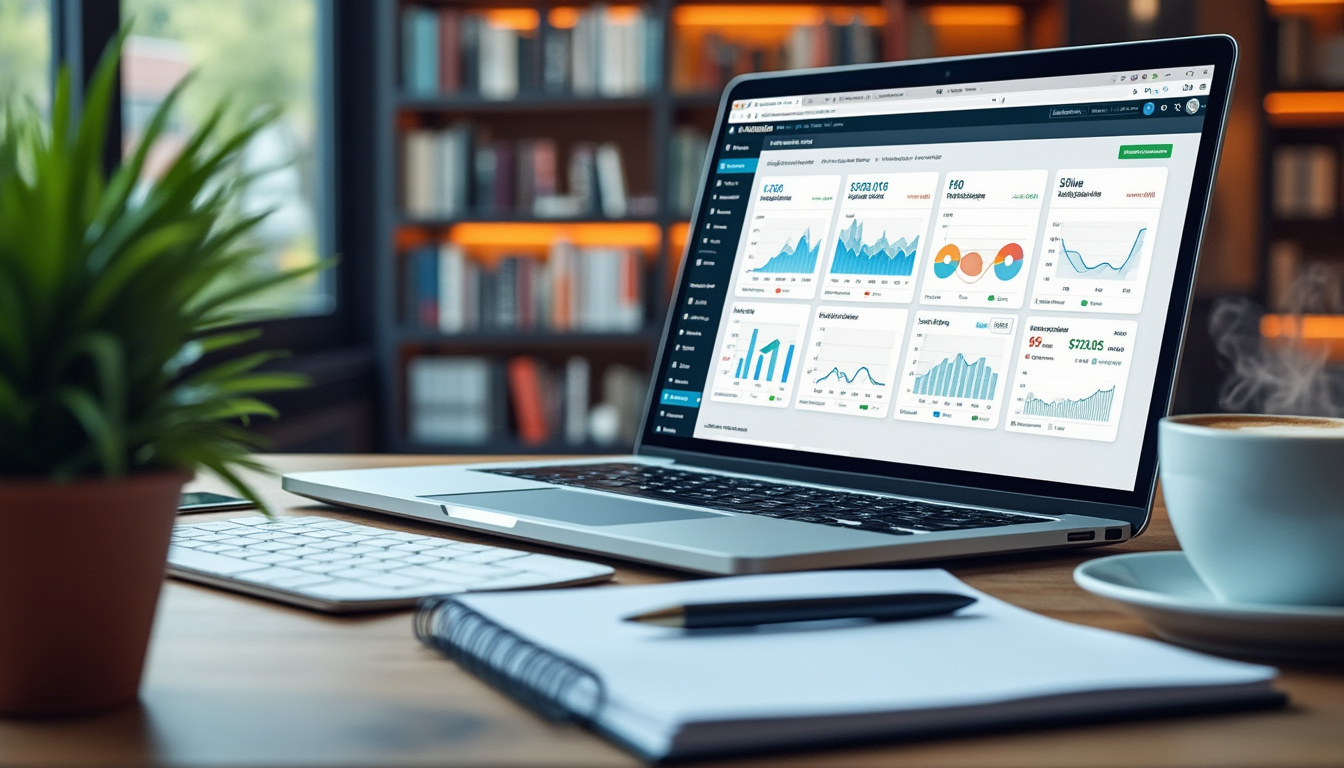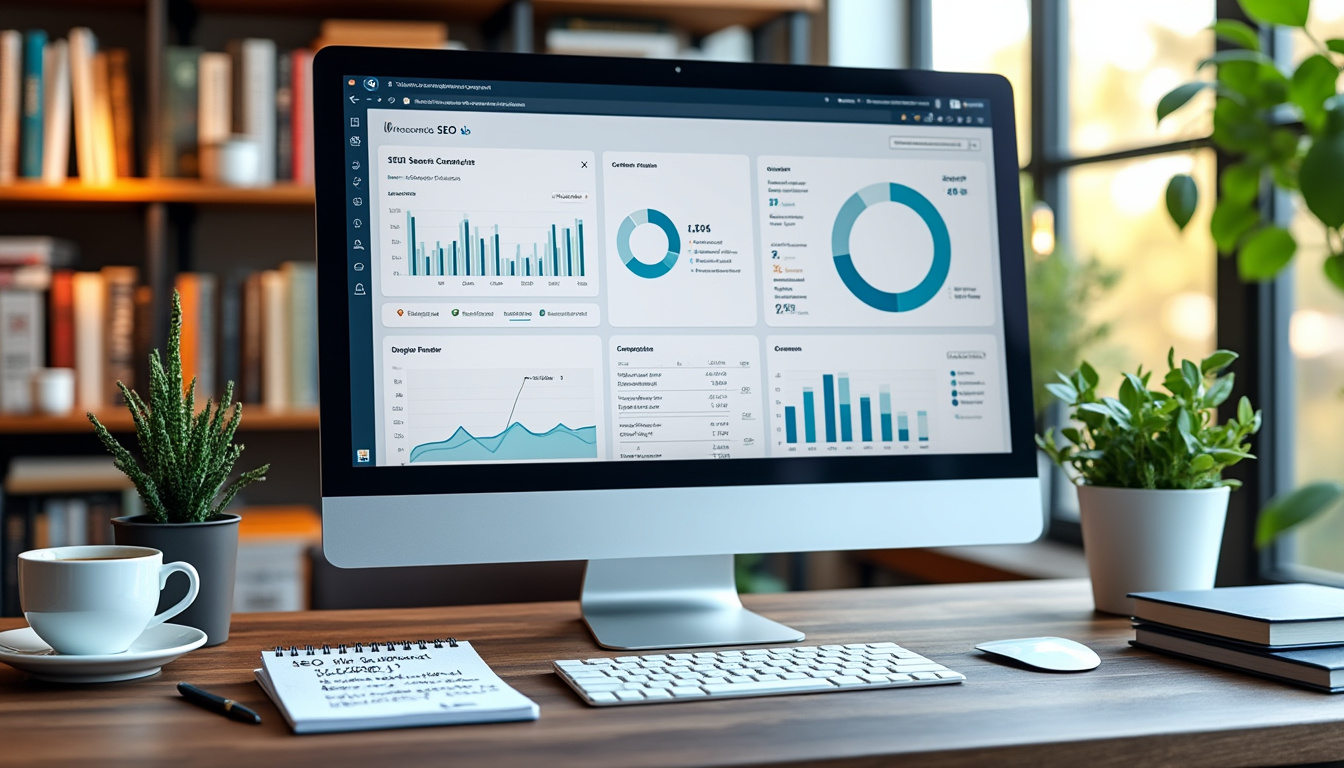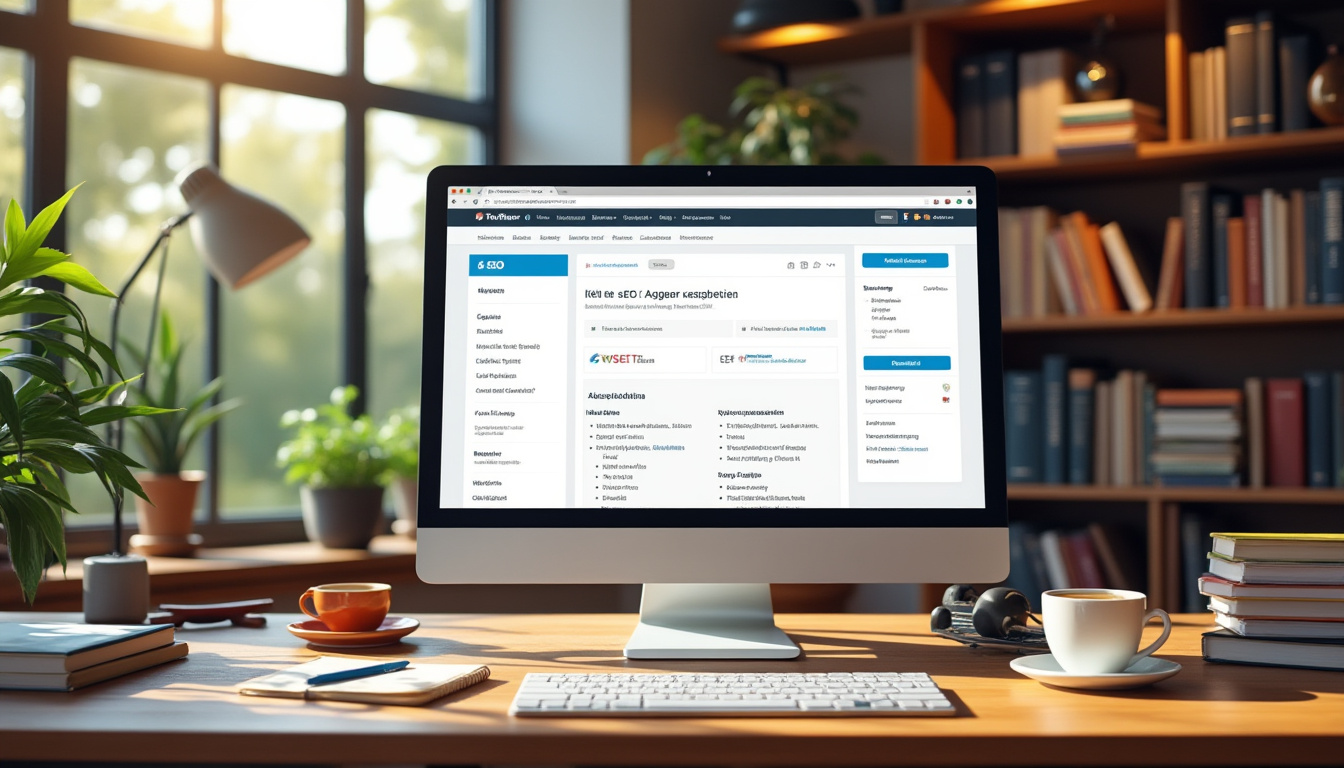Website security is instrumental in enhancing SEO for WordPress sites. A secure website not only protects against hacking but also promotes a positive user experience and builds trust with visitors. Search engines like Google prioritize secure websites, which can lead to improved rankings in search results. Conversely, a compromised site can suffer from increased bounce rates and loss of SEO visibility. Implementing robust security measures, such as SSL certification and regular updates, is essential for optimizing both security and search engine performance.
Website security is a critical component for any online business, particularly for those using WordPress. It significantly affects search engine optimization (SEO) and user trust. This article delves into how different aspects of website security can influence the SEO rankings of WordPress sites while highlighting practical steps to enhance security and maintain high visibility in search engine results.
Understanding Website Security and Its Importance
Website security refers to the measures taken to protect a website from cyber threats and vulnerabilities. These threats can range from hacking attempts and malware attacks to data breaches. For WordPress users, having a secure website is not merely a safety precaution; it directly impacts their SEO rankings. Search engines, particularly Google, prefer websites that offer secure environments for users, which ultimately enhances the user experience.
Website Security Enhancements
Implementing security features like SSL certificates, firewalls, and regular updates can protect your website while improving its SEO performance. A secure site starts with an SSL (Secure Socket Layer) certificate that encrypts data exchanged between the user and the server. According to various studies, websites secured with SSL certificates rank better on search engines compared to those without. This is because Google considers HTTPS as a positive ranking signal.
How Security Affect SEO Rankings
The relationship between website security and SEO rankings is multifaceted. A compromised website can lead to a significant drop in performance through potential penalties by search engines. If a WordPress site is hacked, it can also become blacklisted, resulting in loss of traffic and substantial long-term damage to SEO rankings. Ensuring your website’s safety not only keeps data protected but also maintains your search engine visibility.
Impact of Hacked Sites on SEO
An attack on a WordPress site can manifest in various ways, leading to increased bounce rates and decreased dwell time. Cybercriminals often inject malicious code or spam links that Google might detect, which can lead to a penalty in search rankings. For instance, if a website becomes inaccessible due to hacking attempts, users may exit quickly, negatively affecting engagement metrics that search engines use to gauge website quality.
User Trust and Its Connection to SEO
Website security is paramount not only for SEO but also for building user trust. Users are more likely to engage with and return to sites that they perceive as secure. Factors such as having an HTTPS address and displaying trust seals can influence a user’s decision to stay on a site, ultimately contributing to lower bounce rates and higher conversion rates.
The Role of User Experience in SEO
Search engines prioritize user experience as a significant ranking factor. When visitors feel safe browsing a website, they are more likely to spend time exploring it. A well-secured WordPress site, therefore, can enhance overall user experience—leading to better engagement signals that can boost SEO performance. According to research, sites that prioritize their users often see a significant uptick in their search engine positioning.
Strategies to Enhance WordPress Security
Strengthening your WordPress site’s security is paramount to maintaining SEO rankings. Here are some practices that can bolster your website’s defenses:
Regular Updates
Ensuring all plugins, themes, and WordPress core versions are updated regularly can mitigate the risk of vulnerabilities. Developers frequently release patches for security holes. Neglecting these updates can create an entry point for hackers, leading to potential breaches that damage your SEO efforts.
Use of Strong Passwords and User Permissions
Employing strong passwords and limiting user permissions are essential security measures. Weak passwords can be easily compromised. Additionally, make sure to create different access levels for users based on their roles. Control who can publish, modify, or delete content to limit the chance of internal mishaps.
Implement in Security Plugins
Many WordPress security plugins can offer real-time protection against common threats. Plugins such as Wordfence and Sucuri can help to monitor threats, perform regular scans and enforce firewall rules to protect against attacks. Implementing these plugins not only secures your site but also keeps a vigilant eye on changes that could affect your SEO rankings.
The Importance of Backups
Having a reliable backup solution is crucial when developing a security strategy. Regular backups ensure that you can restore data promptly in case of a cyber attack. In effect, you can recover your website without facing extended downtime which can adversely impact both user experience and SEO performance.
How Backup Solutions can Help SEO
If a website is down for an extended period due to hacker activities, the loss of uptime can result in degraded SEO performance. Search engines expect websites to remain accessible and functional. Backup solutions can help websites be operational swiftly, thus allowing you to maintain your rankings.
Secure Your Site with HTTPS
Switching from HTTP to HTTPS should be one of your first steps in securing your WordPress site. The HTTPS protocol ensures that all communications between the user and your website are encrypted, preventing data theft and ensuring data integrity.
Impact of HTTPS on Google Rankings
Google has publicly confirmed that HTTPS is a ranking factor in their algorithms. This means that securing your site can give you an advantage over competitors who haven’t made the switch. On top of that, users are more willing to share personal information (like emails or credit card details) on secure sites, boosting engagement metrics that contribute to better SEO performance.
Website Performance: A Hidden Factor in SEO
Website speed is intertwined with both website security and SEO. Sluggish loading times typically coincide with security weaknesses, particularly when heavy security measures delay site performance. User impatience can lead to higher bounce rates, harming SEO rankings.
How to Optimize Performance while Ensuring Security
Compress images, leverage browser caching, and utilize content delivery networks (CDNs) to enhance performance without sacrificing security. A well-optimized WordPress site is not only good for users, but it also garners favor from search engines, positively impacting your SEO rankings.
The Consequences of Ignoring Security
Neglecting website security can lead to severe repercussions that affect your credibility and online presence. Affected SEO rankings can result in decreased site visibility, ultimately leading to diminished revenue. Hacked sites need recovery efforts that are not only time-consuming but often costly.
Real-Life Impacts of Security Breaches
Numerous businesses have witnessed catastrophic drops in traffic after a security incident. Not only do they lose user trust, but they also face recovery costs and potential penalties from search engines that detected malicious activities. The long-term effects can cripple businesses that overlook the importance of maintaining a secure WordPress site.
SEO Strategies for a Secure WordPress Site
Implementing effective SEO strategies takes into account the security of the website. Balancing both aspects can provide a solid foundation for long-term visibility on search engines. Here are some strategies:
Strengthen Content Quality
High-quality, relevant content will attract users and encourage them to stay on your site longer. SEO success revolves around generating traffic and engaging visitors with valuable content. When combined with security, it creates a trustworthy environment where users engage freely.
Build Reliable Backlinks
Link building remains a powerful strategy for improving SEO. However, ensuring that inbound links come from secure and reputable sources is essential. Spammy or harmful links can lead to security vulnerabilities and adversely impact your ranking.
Overall, the influence of website security on SEO for WordPress cannot be overstated. A secure website enhances user trust, improves search rankings, and is essential for long-term success in the digital landscape.
Website security is an essential component that directly influences SEO performance for WordPress sites. This article delves into how compromised security can affect search engine rankings and overall user trust, while also providing effective strategies to enhance site security.
Understanding the Connection Between Security and SEO
Website security significantly impacts SEO, as search engines prioritize secure sites, particularly those implementing SSL certificates. A website that is secured with SSL not only showcases a commitment to protecting user data but also positively aligns with Google’s ranking criteria. Secured sites (those with HTTPS) tend to rank higher in search engine results, providing an edge over unsecured competitors.
The Risks of an Unsecured WordPress Site
An unsecured WordPress site is vulnerable to hacking, which can devastate your SEO rankings. Hackers can introduce malicious content, redirect users to harmful sites, or even modify site content, all of which can lead to search engine penalties. A hacked website may experience rapid increases in bounce rates as users navigate away, further harming its position in search engine results.
User Trust and Its Relationship with SEO
When users visit a site, their perceptions of security heavily influence their trust. An unsecured site can deter visitors, leading to a higher bounce rate, which negatively affects SEO rankings. Maintaining strong website security not only keeps user data safe but also fosters trust, encouraging visitors to stay longer and engage more with your content.
Common Security Issues Impacting SEO
Several common WordPress security issues can adversely impact SEO. These include outdated plugins, weak passwords, and lack of regular updates. Such vulnerabilities can lead to being blacklisted by search engines or encountering severe penalties. Regularly auditing your site’s security can help identify and mitigate these risks.
Best Practices for Enhancing WordPress Security
To protect your WordPress site and its SEO ranking, it is crucial to implement best practices. Here are some strategies:
- Utilize SSL certificates: This enhances user trust and compliance with search engine requirements.
- Regular updates: Keep your WordPress core, themes, and plugins regularly updated to fend off vulnerabilities.
- Backup your site: Regular backups can help restore your site quickly in case of an attack.
- Strong passwords: Use complex passwords and two-factor authentication for administrative access.
- Security plugins: Implement security plugins to monitor and defend against intrusions.
Monitoring and Recovery Post-Breach
If your WordPress site has been compromised, swift action is necessary. Understanding how to recover your site and minimize SEO damage is crucial. Regularly check your site’s performance and security status to ensure that any vulnerabilities are addressed promptly. For recovery tips, you may visit this resource for troubleshooting assistance.
Website security plays a pivotal role in shaping SEO outcomes for WordPress sites. The connection between security, user trust, and SEO rankings underscores the importance of implementing robust security measures to protect both site performance and user engagement.
| Aspect | Effect on SEO |
| Website Availability | Secure sites are less likely to experience downtime, maintaining higher search rankings. |
| SSL Certification | SSL improves trust and is favored by search engines, boosting SEO performance. |
| User Trust | Enhanced security fosters user trust, reducing bounce rates which positively affects SEO. |
| Spam Prevention | Strong security measures help in avoiding spam, leading to better SEO outcomes. |
| Page Load Speed | Secure websites can load faster, contributing to improved SEO rankings. |
| Search Engine Ranking | Search engines prioritize secure websites in SERPs, enhancing visibility. |
| Vulnerability to Attacks | Breaches can severely damage SEO, resulting in dropped rankings and traffic. |
| Content Integrity | Ensuring content remains unchanged boosts credibility and positively impacts SEO. |
Website security is essential for every site, especially for those built on WordPress. As search engines prioritize user experience, the security of a website plays a critical role in its SEO rankings. This article will explore the various ways in which website security impacts SEO and provide recommendations to protect your WordPress site from threats while improving your visibility on search engine result pages (SERPs).
Understanding the Connection Between Security and SEO
Security breaches can lead to significant consequences for your WordPress site, including a drop in SEO rankings. When a website is compromised, search engines may blacklist it, resulting in reduced traffic and lower credibility. It is important to understand that a secure website contributes to a positive user experience, which directly influences SEO performance.
Impact on User Trust
Users are more likely to engage with a website that appears secure. Websites featuring secure connections, like those with SSL certificates, show visitors that their information is protected. Consequently, a trustworthy site leads to increased engagement, reduced bounce rates, and improved rankings. Implementing robust security measures helps establish your website as a credible source.
How Website Security Elements Influence Rankings
Several components of website security can affect SEO rankings. Here are some key factors:
SSL Certification
Having an SSL certificate is one of the most important steps in ensuring your website’s security. Search engines like Google favor secure sites, so implementing SSL can positively impact your SEO rankings. Enabling HTTPS not only reassures users but also contributes to lower page loading times, which is beneficial for SEO.
Site Speed and Performance
A secure site often means optimized performance, as security measures can prevent potential threats that slow down loading times. Site speed is a critical ranking factor, with slower pages leading to higher bounce rates. By prioritizing security, you can enhance your website’s responsive nature, leading to better user experiences and improved SEO.
Common Website Security Threats to Watch Out For
With the growing popularity of WordPress, it has become a target for various cyber threats. Understanding these vulnerabilities can help you take proactive measures:
Malware and Hacking Attempts
Malware can severely damage your site’s reputation and diminish its SEO effectiveness. A hacked website can lead to search engine penalties or blacklisting. Regularly monitoring your site and employing security plugins can mitigate these risks and help safeguard your SEO.
Spam and Backlink Issues
Spammy links pointing to your website can negatively impact your SEO. This often occurs when your site lacks adequate security, making it easy for spammers to exploit it. Implementing security measures can help prevent unauthorized backlinks and maintain your site’s integrity.
Tips for Enhancing WordPress Security
To secure your WordPress site and safeguard your SEO rankings, consider the following recommendations:
1. Install Security Plugins
Security plugins are essential for protecting your website. They can help mitigate risks by offering features like firewalls, malware scanning, and login attempt monitoring.
2. Regular Updates
Keeping your WordPress core, themes, and plugins updated is crucial for maintaining site security. Updates often include security patches that protect against vulnerabilities.
3. Strong Password Policies
Implementing strong password policies for all users, especially admins, can significantly reduce the risk of unauthorized access. Utilize a combination of letters, numbers, and special characters.
4. Backups
Regularly back up your website to ensure that you can recover it in case of a security breach. This step is vital for maintaining both security and SEO integrity.
- How does website security impact SEO rankings?
- Website security plays a crucial role in maintaining a positive user experience, which is essential for good SEO rankings. Secure websites are favored by search engines, thus improving their visibility in search results.
- What happens to SEO if my WordPress site gets hacked?
- If your WordPress site is hacked, it can lead to significant damage to your SEO. Search engines may penalize your site, resulting in a drop in rankings and visibility due to malware or spam being associated with your site.
- Can a secure WordPress site lead to higher user trust?
- Yes, a secure WordPress site enhances user trust. When users see security features, such as SSL certificates, they are more likely to engage with and stay on your site, leading to lower bounce rates and improved SEO performance.
- What measures can I take to improve my WordPress security?
- You can enhance your WordPress security by regularly updating your plugins and themes, using strong passwords, implementing SSL certificates, and utilizing security plugins to monitor and protect against threats.
- Does website speed influenced by security affect SEO?
- Absolutely! A secure website that loads quickly will promote a better user experience, which helps in improving your SEO rankings. Security measures should not compromise your website’s speed.
- How often should I check for security issues on my WordPress site?
- It is advisable to check for security issues on a regular basis, ideally weekly, to promptly address any vulnerabilities before they can affect your site’s SEO and user experience.
- Are there specific security features that benefit WordPress sites in terms of SEO?
- Yes, features such as SSL certificates, regular backups, and firewall protections not only secure your site but also contribute positively to your SEO by making your site more credible to search engines.








